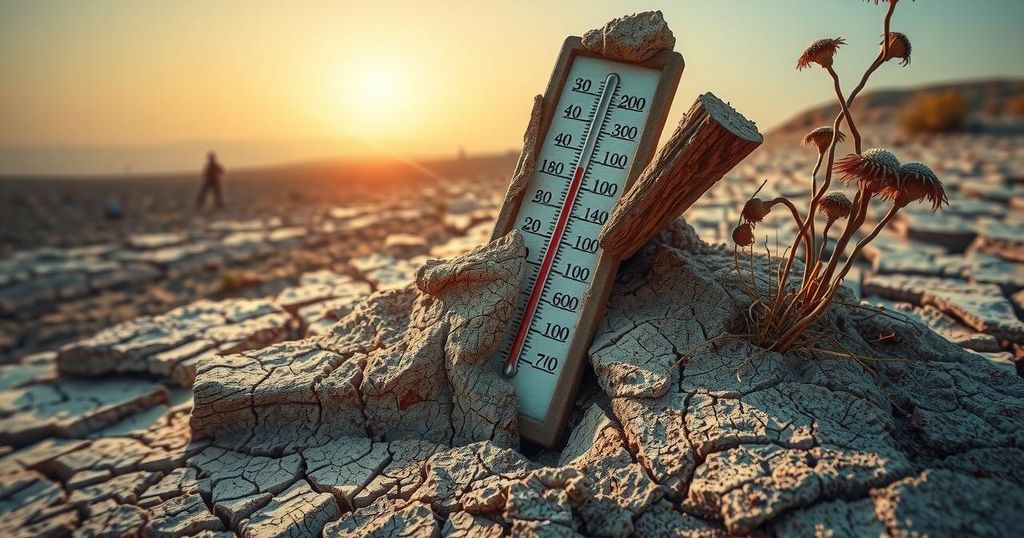Rising temperatures in Kerala during February suggest that 2025 may be the hottest year on record for the state. The IMD reported temperatures exceeding normal averages, prompting alerts for potential heat waves. The World Meteorological Organization confirms consistent record-breaking temperatures, underlining the need for effective climate action to protect health, agriculture, and biodiversity.
Rising mercury levels in Kerala during February may indicate that 2025 could potentially become the hottest year on record for the state. Kerala’s unique geographic position, nestled between the Arabian Sea and the Western Ghats, results in a climate that is distinct from other regions in India. While severe winter is absent, February often acts as a transitional month, leading to significant fluctuations in temperature, as noted by Neetha K. Gopal, Head of the Indian Meteorological Department (IMD) in Kerala.
Historically, 2024 was documented as the hottest year globally, and early indications suggest that 2025 might surpass it. Neetha K. Gopal highlighted that Kerala recorded a temperature of 35 degrees Celsius on February 2, which is 2 degrees above the average. The absence of predicted rain or clouds in the coming week may contribute to continued hot conditions, prompting the IMD to issue alerts for residents to prepare accordingly.
The potential for rising temperatures due to climate change poses threats not only to human health but also to agriculture and biodiversity in Kerala. Neetha K. Gopal emphasized the necessity for strategic long-term planning to mitigate the effects of escalating temperatures. This includes tailored approaches by relevant government ministries to protect agricultural outputs and ecological systems against anticipated climatic shifts.
The World Meteorological Organization (WMO) has confirmed that 2024 was the warmest year on record, indicating a concerning trend of increasing global temperatures. Projections suggest that every degree of global warming may lead to a 7% increase in extreme daily rainfall. Consequently, with Kerala’s vulnerability to climate extremes, necessary precautions must be taken to prepare for potential severe weather events in the future.
Kerala’s climate is influenced significantly by its geographical features, which differentiate it from other parts of India. The region experiences a blend of seasonal changes throughout the year, which is increasingly affected by climate change. The rising temperatures and erratic weather patterns are indicative of a broader trend of global warming, with implications for agriculture, water resources, and overall public health in the state.
In conclusion, Kerala is facing rising temperatures that may signal a pivotal shift in climate patterns, as evidenced by February’s unusually high mercury levels. The potential for 2025 to become the hottest year poses risks to both human and ecological health. Proactive measures, informed by the IMD’s forecasts, are essential to safeguard the state’s agriculture and biodiversity against the looming threats of climate change.
Original Source: www.onmanorama.com




